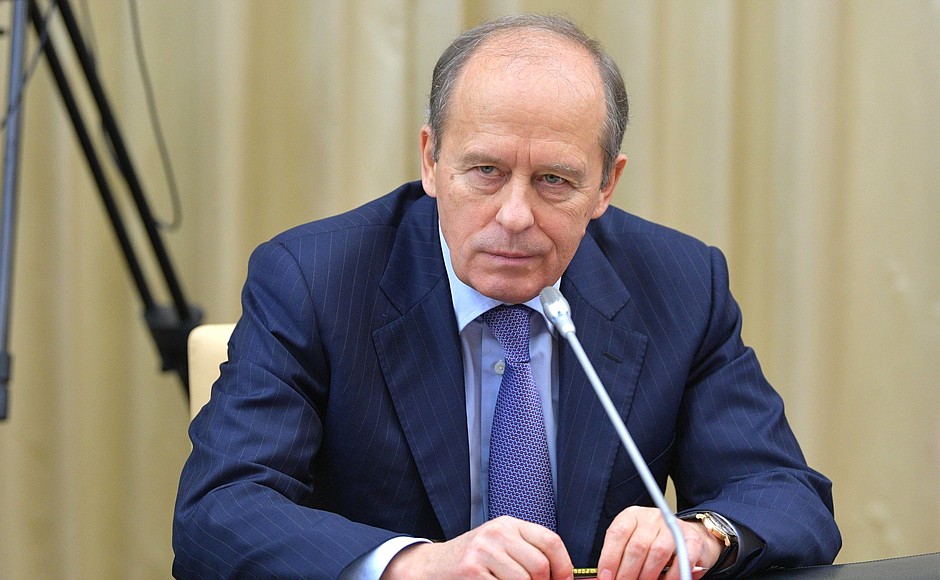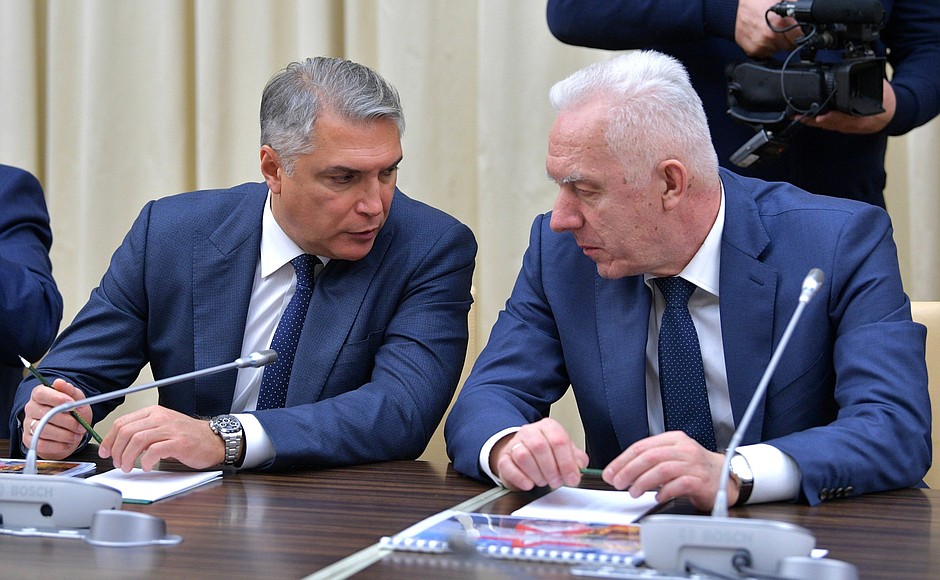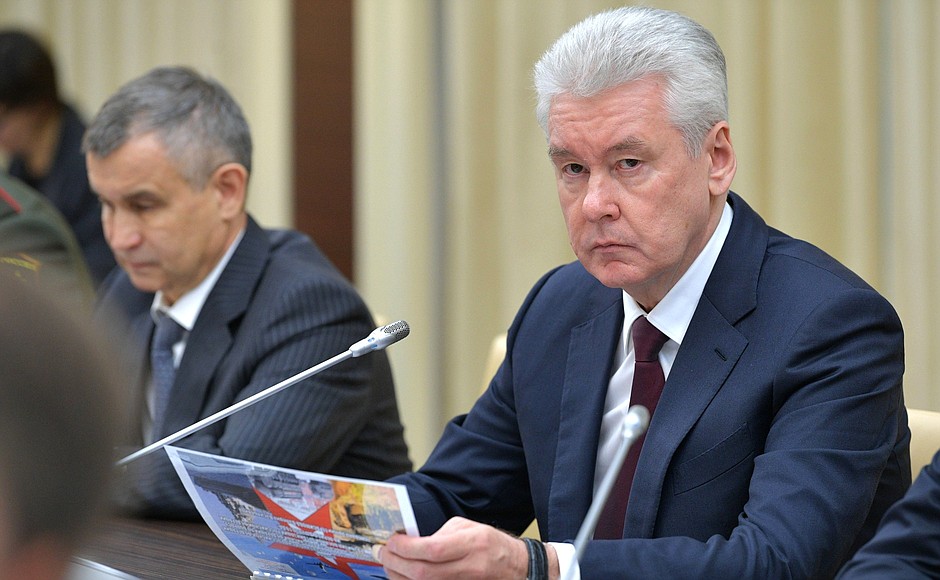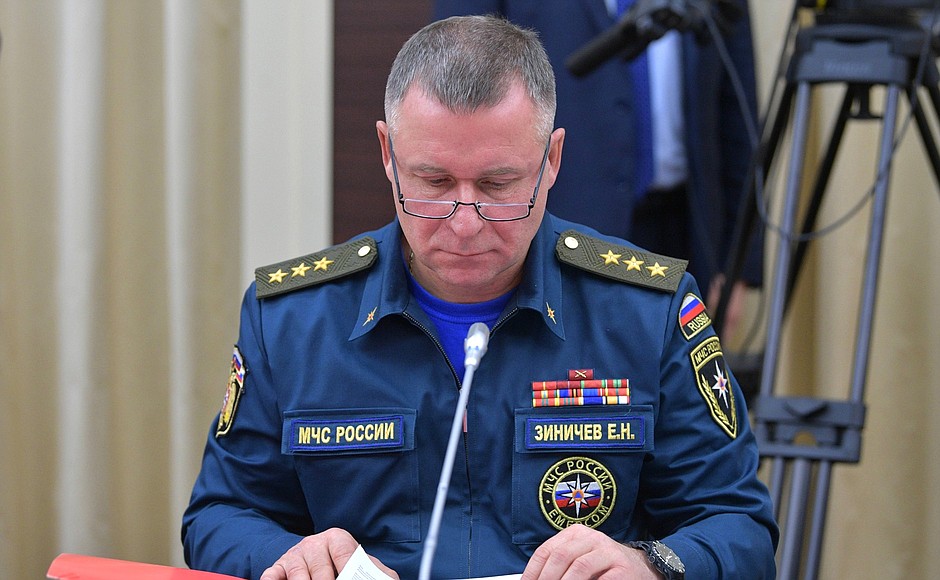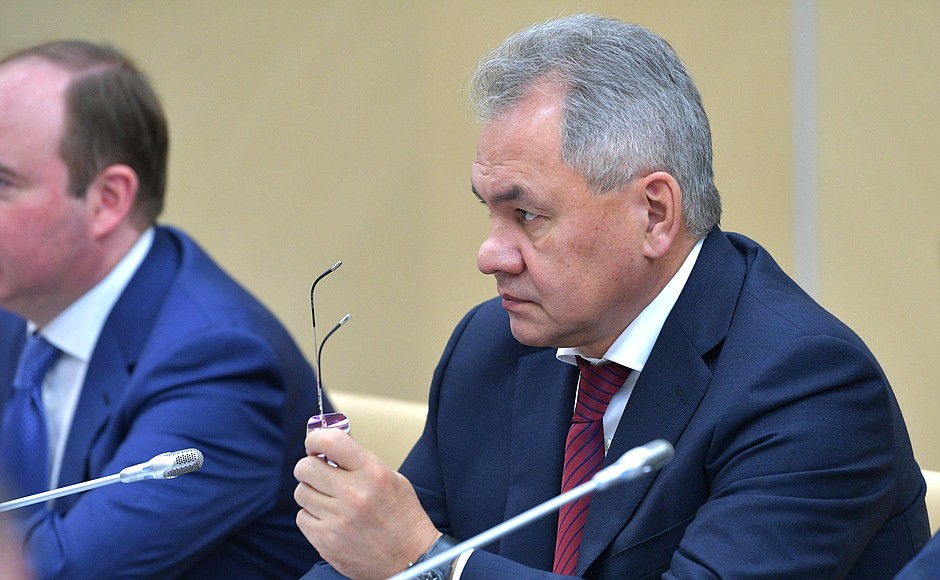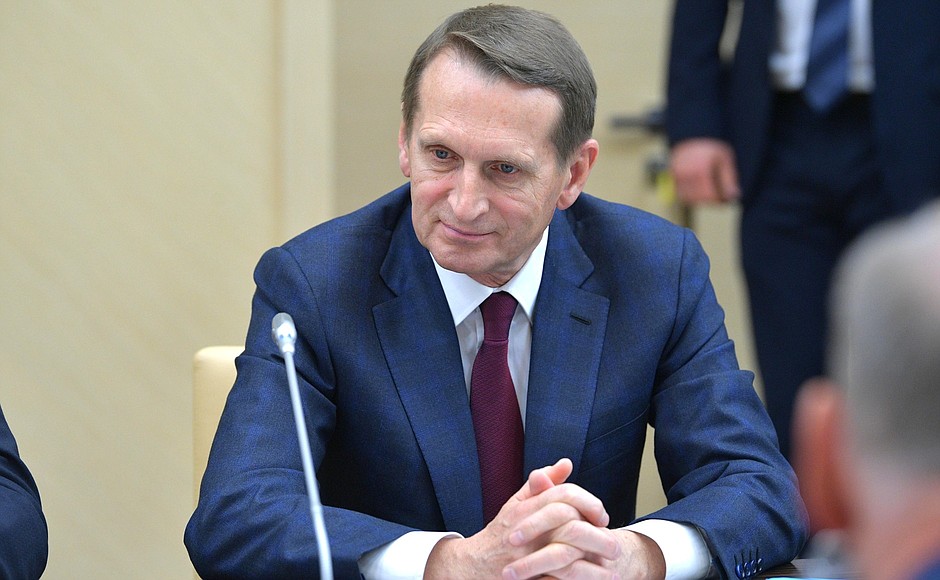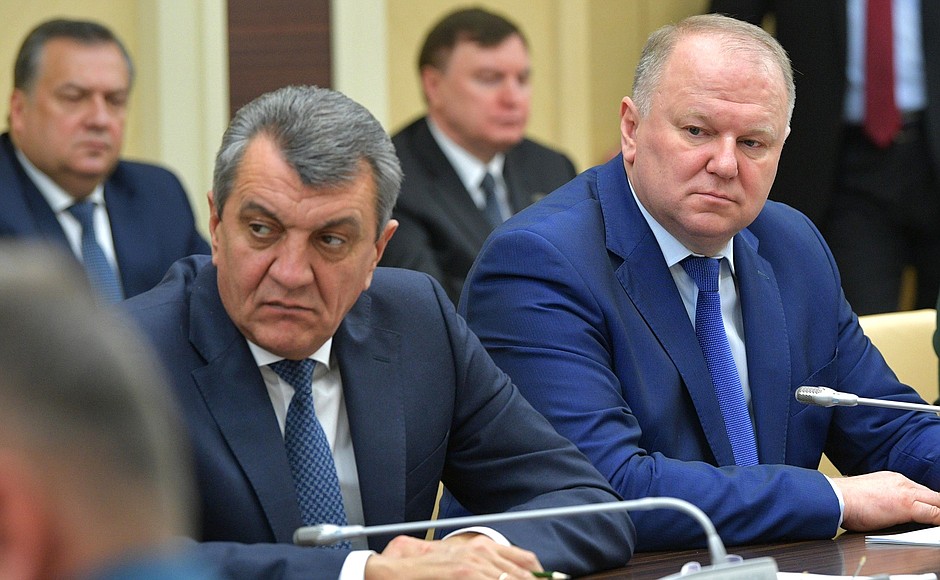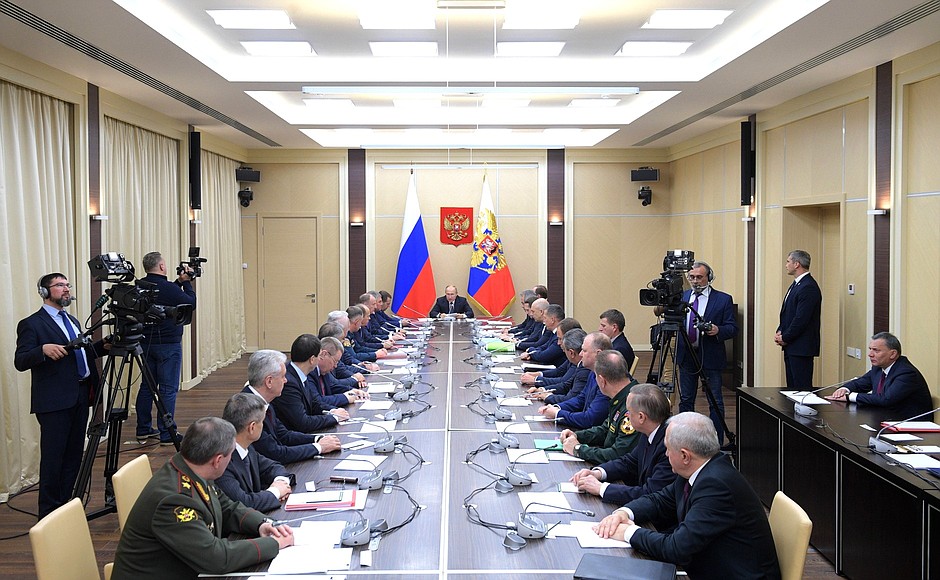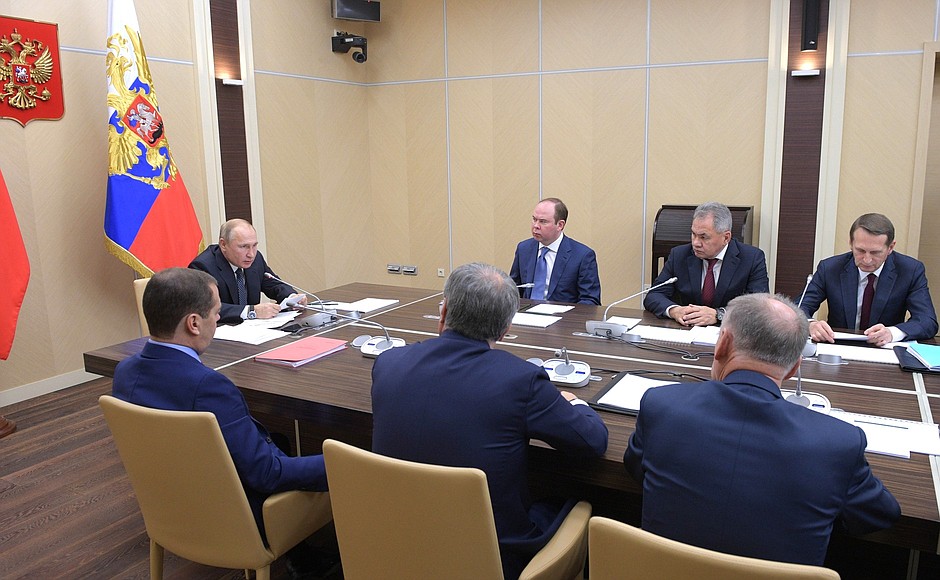President of Russia Vladimir Putin: Good afternoon, colleagues.
Today we will discuss ways and prospects for the development of the Russian military in the upcoming decade, until 2030. We will outline the tasks we will have to deal with in order to guarantee Russia’s national interests and security.
Our military, namely, the Armed Forces, the National Guard, other military units and agencies, as well as the country’s defence industry sector play a key role in ensuring Russia’s sovereignty. It is very important that their components are maintained at a certain level, and that they operate professionally and in a coordinated manner.
As we can see, the world is facing serious threats and challenges. There are many uncertainty factors. Technology is developing rapidly, including military technology, while competition and rivalry are growing stronger and morphing into new forms. There are old smouldering conflicts in various regions of the planet, and new ones keep appearing. The leading countries are actively developing their offensive weapons. I would like to add that the so-called ‘nuclear club’ is receiving new members, as you well know. We are also seriously concerned about the NATO infrastructure approaching our borders, as well as the attempts to militarise outer space.
A significant blow to the weapons control system was the US withdrawal from the Intermediate-Range Nuclear Forces Treaty under a far-fetched pretext. The threat of proliferation of such missiles in various parts of the world has aggravated tension even more.
In these conditions, it is important to make adequate and accurate forecasts, analyse the possible changes in the global situation, and to use the forecasts and conclusions to develop our military potential.
I would like to note that a great deal has been done over the past years to strengthen all the security agencies. The implementation of decisions made at the Security Council meeting on July 5, 2013, facilitated this to a great extent.
For example, the Military Doctrine and several other documents on strategic planning were revised. They outlined and specified the areas of the security agencies’ joint activities to ensure Russia’s security, as well as their defence tasks.
I would like to single out the successful implementation of the State Armament Programme, which made it possible to begin major technical re-equipment of the military. The share of advanced weapons in the Army and the Navy’s equipment accounts for over 68 percent today, and some of the equipment is years ahead of its foreign analogues.
The operation against terrorist groups in Syria was a serious professional test for our military. Let me note once again that the personnel of the Russian Aerospace Forces, the Navy, the Special Operations Forces, the military police and other agencies and services fulfilled their tasks completely and professionally, preventing the militants from pushing on to Russia.
As you know, large-scale and active hostilities are over, but the combat experience received there is needed today in the military building and during the annual exercises and unplanned inspections.
Recently such key indicators of the military organisations’ development as the quality of materiel procurement and mobilisation readiness have increased significantly. The systems of territorial defence and training of military experts have improved.
Last year military-political agencies were established, which address important tasks of the patriotic education of the personnel and recruits.
Of course, special focus was made on the defence industry complex. The Military and Industrial Commission was formed to ensure more detailed coordination between the security agencies and defence enterprises in the implementation of the state defence order.
In 2016–2017, the government covered, ahead of time, defence companies’ loans they had drawn to fulfil the State Armament Programme. In addition, new financial mechanisms were established to help increase the industry’s economic stability and retain the personnel.
Our task for the next decade is to continue strengthening and developing the military, technical and personnel potential of the country's defence industry. In this regard, I would like to highlight several fundamental points.
First, it is essential to ensure a balanced development of all components of the defence industry, primarily through competent and rational use of budget allocations, and material and technical resources. They are not too big – if you compare with how much other leading countries allocate for these purposes.
Second. We must improve the management system in the defence industry. This system should be modern, reliable, multi-functional, and it should use advanced information and analytical systems, communications and intelligence. In order to address defence and security issues effectively, a clear interaction procedure should be established between law enforcement agencies and authorities at all levels.
Third. In the coming years, the share of modern weapons and equipment in the Russian Army and Navy and other services must increase; it should reach 70 percent and continue to be maintained at that level.
What does this mean in practical terms? It means that, despite all the turbulent technological changes in the world, our Armed Forces must be equipped with the most up-to-date technology. We have actually achieved this, which is a rare occurrence for both Russia and the rest of the world in modern history: we have gone a step ahead of other leading military powers, and we must make every effort to maintain this level in the future in the most important areas of development.
At the same time, in the strategic nuclear forces, which play a key role in containing potential aggressors and maintaining the global balance of power, the share of modern weapons should be even greater.
I also would like to note that next year, we will begin drafting the State Armament Programme until 2033 and, accordingly, a programme for the development of the defence industry.
Our main objective for the new period is to improve the quality of weapons and equipment and increase their output. I am referring to modern and advanced high-precision weapons and means of aerospace defence, as well as the broad use of artificial intelligence in creating military products. In particular, we must expand the product line of reconnaissance and attack unmanned aerial vehicles, laser and hypersonic systems and weapons based on new principles of physics, as well as robotic systems capable of performing a variety of tasks on the battlefield.
Fourth. The defence industry organisations must increase the level of production and technological readiness for the development and serial production of modern weapons and equipment. We should think about this in advance, as we did during the previous phase. As you may recall, we allocated significant funds to re-equip defence industry enterprises during the first phase, so they could produce modern equipment. We managed to accomplish that. We should keep the next phases of our work fail-proof no matter what.
At the same time, as I have already mentioned, it is important to expand the range and volume of civilian products, including under the national projects.
Colleagues,
Increasing the prestige of military service is among the military establishment’s top priorities and is directly related to improving the social guarantee system for service members and their families.
The monetary allowance of service members grew by 8.3 percent over the past two years, and the size of military pensions increased as well. More than 42,000 army and other service personnel have received permanent housing and almost 275,000 members of the military have received service housing since 2016. Over 405 billion rubles were allocated to develop the funded mortgage system for military personnel, of which about 142 billion rubles were made available in 2019.
I want to emphasise that this work must continue. There should be no glitches when it comes to adjusting monetary allowances for inflation. Dignified living and service conditions are an essential and determining factor for our country’s military.
Our service members should know that when they perform important tasks away from their homes and families in harsh conditions involving heightened risk and often life-threatening situations, their Motherland, the state they serve is taking good care of them.
Let us get to the discussion.
<…>
